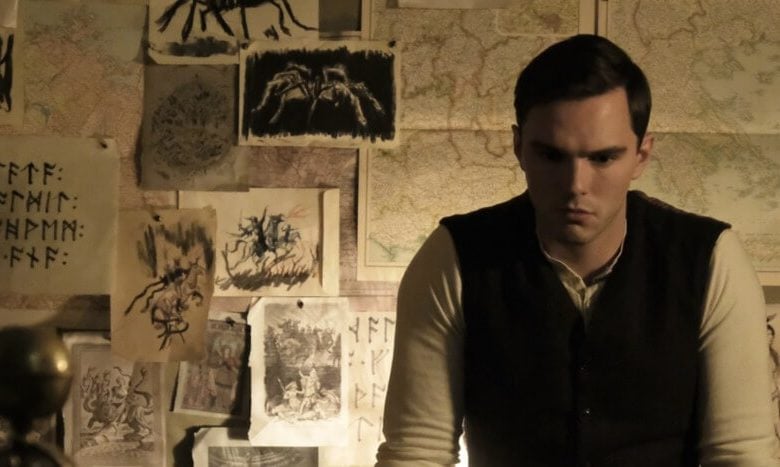Why Are Studios Still Scared of Christianity?

The new film “Tolkien” does more than examine the life of the mind behind “Lord of the Rings.”
The biopic reportedly ignores the large role faith played in J. R.R. Tolkien’s literature … and life.
PJ Media reports the film, starring Nicholas Hoult as the famed author, goes out of its way to minimize the subject’s Christianity.
Worst, however, is the film’s neglect for Tolkien’s faith, which inspired his entire life. The movie also cuts out the literary works that inspired his imagination — touchstones of the Western literary tradition. In fact, the author’s literary masterpiece The Lord of the Rings is heavily influenced not just by the Western literary tradition but by Christianity and Jesus in particular.
This shouldn’t come as a shock. Hollywood boasts a track record of such spiritual edits.
Take last year’s box office disappointment “A Wrinkle in Time.” Disney’s take on the beloved book 
Even the far-left Vox.com cried foul over the decision.
The result? A sure-fire hit struggled to earn $100 million domestically, far below what a traditional blockbuster earns.
How much did that creative decision hurt the film’s earning potential?
Another major biopic thrived despite nixing most of the subject’s spiritual nature. “Walk the Line” earned co-star Reese Witherspoon a Best Actress Oscar and endless praise for Joaquin Phoenix’s Johnny Cash performance.
The 2005 movie still kept Cash’s faith, a vital part of his voice, relegated to the background. Here’s how writer/producer Mark Joseph describe the film’s “creative” omission.
The Almighty, omnipresent in Cash’s life amidst his struggles to fight addiction, is barely worthy of a mention in “Walk The Line.” Imagine watching a movie about Kurt Cobain and hearing the name Courtney Love mentioned once or twice as an aside, or for that matter watching Bud Abbott’s life story and never being introduced to Lou Costello. Such is the silliness of trying to tell the Johnny Cash story and leaving out either of his real-life co-stars, God or June Carter.
The 2014 film “Noah” appeared, on the surface, to be a major studio telling a Bible-based tale. Instead, the film cared more about environmentalism than faith, according to some observers. The film also disappointed at the box office, tallying a $101 million domestic haul (on a $125 million budget).
RELATED: When Hollywood Honors the Bible, This Usually Follows
Director Angelina Jolie’s film “Unbroken” had a reasonable excuse for skimping on her subject’s faith. “Unbroken” told the remarkable story of Louis Zamperini, an athlete captured by Japanese forces during World War II. The narrative to Jolie’s 2014 film didn’t fully explore his faith journey, though, keeping Zamberini’s war years as the focus.
That decision didn’t go down easily for many inspired by his life story.
It did, however, pave the way for a follow-up feature, 2018’s “Unbroken: Path to Redemption.” That project lacked the cast from the original film and featured a far smaller budget than the one Jolie employed.
Hollywood’s growing embrace of faith-based storytelling can be seen in films like “Breakthrough” and “Miracles from Heaven.” Still, the industry isn’t always keen on connecting stories with faith, even when it’s clear Christianity played a major role in one form or another.
So cultural observers shouldn’t be shocked that “Tolkien” pulls a similar stunt. Now, let’s see if that has an impact on the film’s bottom line.
